|
Science is like magic, and scientists like magicians because science makes possible what seems impossible, and scientists have the knowledge that makes things possible. Today we live in the most scientifically advanced era of human history. If 100 years back someone spoke of the inventions we experience today they would sound unbelievable and magical.
The other day while scrolling through Instagram posts I came across a video of Ectolife, an Artificial Womb Facility, a futuristic project that aims to provide an alternative to traditional birth and pregnancy. Also called Synthetic Womb, is basically an imitation of a natural womb, which aims to one day gestate the baby from the embryonic stage till the baby is born. Al-Ghaili, who shared the video concept of this extraordinary facility says “It’s a perfect solution for women who [have] had their uterus surgically removed due to cancer or other complications. It could also help solve issues that stem from low sperm count,” Al-Ghaili said enthusiastically, adding that the EctoLife concept (or technologies like it) “could ultimately make miscarriage a thing of the past.”[1] But that’s not it! This artificial womb technology would also offer parents the ability to “genetically engineer the[ir] embryo before implanting it into the artificial womb” through the use of the CRISPR-Cas 9 gene editing tool. This would create the opportunity to “fix any inherited genetic diseases that are part of your family history so that your baby and their offspring will live a healthy, comfortable life free of genetic diseases.” Gene editing to cure genetic diseases sound like an amazing solution but this also raises other safety and ethical concerns. As one article reads “with genetic technology advances, we may be on the verge of a slippery slope. Many scientists, ethicists, and legislators fear a future in which babies are genetically designed for features that have little to do with preventing deadly medical disorders, such as athletic prowess, eye color, and I.Q.”[2] Scientists like Dr. Carlo Bulletti, even think that a fully functioning artificial womb could be realized within the next 10 years![3] With more advancement in artificial intelligence, we can possibly expect an increased amount of interest in research and funding for this project especially due to many nations facing issues like increase in infertility, decline in population, rise in LGBTQ and same-sex marriages, women suffering from removal of uteruses, or those choosing not to become pregnant yet desire to have a child through adoption or surrogacy. Considering that this technology does appear in the next decade and is able to successfully gestate the first batch of embryos in a complete artificial setting, the biggest question should be whether an artificial womb will generate a natural being or an artificial being? Doctors observe mental development, physical abilities, and the strength of the immune system in a newborn. But there are other factors that modern science does not pay attention to. Such as internal developmental factors related to a child’s intellectual, moral and spiritual upbringing that are equally important. Then comes factors that are tied to every humans life but science cannot answer them such as, will the child destined to become good or bad, fortunate or unfortunate, how long will the child live and what will be the time of death? Therefore we have no choice but to turn to religion to gain insight to better understand the greater implications of such technology for humanity. All religions teach that a human being is born with a conscious life called soul which comes to be placed in a mother’s womb through a divine decree. Modern psychology uses the term psyche for this human consciousness. Islam sheds light on how and when that conscious life is placed in a fetus. Prophet Muhammad ﷺ said: “(The matter of the Creation of) a human being is put together in the womb of the mother in forty days, and then he becomes a clot of thick blood for a similar period, and then a piece of flesh for a similar period. Then Allah sends an angel who is ordered to write four things. He is ordered to write down his (i.e. the new creature's) deeds, his livelihood, his (date of) death, and whether he will be blessed or wretched (in religion). Then the soul is breathed into him..."[4] - An embryo that grows in an artificial womb instead of a female’s womb will have a soul or no should be the greatest concern of the pioneers of this technology especially if they are Muslims. I believe that if this technology is able to successfully generate a child, the child will not possess a soul and in fact would be a jasad. Any corporeal figure that has no soul is referred to as a jasad جسد in Arabic which means 'a soulless body' or a 'body without a soul'. This body would be similar in appearance to an actual human baby but will not be the human species we are, it will not carry consciousness and desires. There are strong reasons to believe that this creation will just be body that will be breathing, will be alive but without an intellect and other higher mental faculties required for natural progression. It would simply be an Artificial Being. What is a Jasad? The term jasad (Arabic جسد) – is defined as a material body that is devoid of a soul. It can be described as “a mere body” or a “lifeless body”. Lexically "jasad is that which has neither intellect nor the ability to discern (la ya'qil la yumayyiz), indeed the meaning of jasad is simply the body (juththa)"[5] This term can be applied towards an artificial being, whether animal or human. There are 3 types of jasads in the Quran depending on the context they are mentioned:
When Prophet Musa (a.s) saved the Israelis from Pharaohs army and crossed the Red Sea into Sinai, an Egyptian magician named As-Samiri was among them. After Prophet Musa (a.s) withdrew from the Israelis for 40 days to receive the revelation, As-Samiri in his absence created a calf using magical arts and convinced the Israelis to worship it: “Then he moulded for them jasad (a mere body) of a calf that made a lowing sound. They said, “This is your god and the god of Moses, but Moses forgot where it was!” Did they not see that it did not respond to them, nor could it protect or benefit them?” (Al Quran 20:88) Allah ﷻ refers to this calf as a jasad, which means it was similar in its outward form to a natural born calf but was not responsive because it did not possessed the abilities of a natural born. But because As-Samiri was able to produce an extraordinary feat the Israelis in their ignorance believed him and worshiped the calf. Magic was at its greatest during Prophet Musa’s era. But the origin of magic was not Egypt, it was ancient Mesopotamia (Iraq), the Babylonian region, from whom all nations such as the Egyptians, Persians, Greeks, Indians, have learned these arts. Ibn Wahshiyya, a 10th century Iraqi agronomist who lived during Abbasid era, gained access to literature belonging to ancient inhabitants of Mesopotamia whom he called the Nabateans. Presumably these were 20,000-year-old manuscripts! Please note that these Nabateans are not to be confused with those of Petra in Jordan. Nabateans of ancient Iraq are the Chaldeans or Babylonians. The Nabatean corpus was in ancient Syriac language and translated into Arabic by Ibn Wahshiyya, and collected into a book named Al Filaha Al Nabatiyya (The Nabateans Agriculture). The book is primarily concerned with agriculture and how movement of the celestial bodies, stars, and planets, impacts agriculture. Some part of the book is also concerned with spontaneous generation and magic. In the following excerpt taken from the English translation of the book, Ibn Wahshiyyah is quoted as saying: “They (i.e., the ancients) generated animals in the same way as plants. The magician (as-sahir) Ankabutha even generated (kawwana) a man (insan) and he described in his book on generation how he generated him and what he did so that he could complete the being of that man. He did admit, though, that what he generated was not a complete example of the species of man and that it did not speak nor understand. It had a complete outer form in all its limbs, yet it was like a perplexed and dazed (man) who neither spoke nor understood. This is because the generation of animals and especially human beings from among animals is much more difficult than the generation of plants, because the one who generates them (i.e., animals or men) must exert himself in an action which we only partially grasp and the major part of which we do not understand. This is why we (usually) are not able to generate animals and especially human beings and we are not able to do with them what we can do with plants. Ankabutha also mentioned that he had generated a sheep which had emerged totally white, and which was like the generated man: it could neither bleat nor eat, although it did open and close its eyes. After him Sabyatha desired to generate a man so that he could make use of the special property in him but the king prevented him from doing this because this artificial man and other artificial animals had been used for deeds that had baffled and confused people. Perhaps that had even caused disturbances (fitna) among them. This was why the king contrived to prevent Sabyatha from doing this.”[6] This artificial man or the animal who neither spoke nor understood is a reference to jasads i.e., soulless or consciousless bodies that contain basic life and nothing more. The footnotes of the English translation also mentions the legend of a Jewish Rabbi of Prague that created a similar artificial man called Golem, a Jewish term for such artificial beings. The Jews have spent a considerable part of their history in Babylonia and are known to have learned magical science during that era. And so, the process of generating artificial beings using artificial intelligence is reminiscent of the magical science that ancient have used to generate animals and even humans. But they could not generate those beings with a purpose, like those born naturally who serve their individual purposes. Just like all creation, humans are created for a specific purpose and the fulfillment of that purpose lies in the soul that is blown at the fetal level. In another instance Allah ﷻ uses the term jasad to address the concern of the disbelievers who questioned His wisdom of choosing a human prophet to deliver His message and not an angel from the heavens or some supernatural being that lives without food and water: “And We did not send before you messengers except men whom We inspired with revelation. So, ask the people (having the knowledge) of the Message, if you do not know. And We did not give them (those messengers) such jasadan (pl. of jasad - bodies) that ate no food, nor were they immortal.” (Al Quran 21:08) Another depiction of a jasad are modern day humanoid robots who can sustain without food and water. Humanoid robots called Androids are human lookalike models of robots that behave much like human beings. Some examples of these artificial beings are the Maria Bot in the US that works as a teacher’s assistance. She uses AI to process and synthesize information to make her own decisions on how to talk and engage. She even collects data through conversations, books, or articles, and through internet sources.[7] Even though Maria amazes minds, she is still far from extraordinary ones like Sophia, the most advanced human looking robot ever built! Just quick view of a short film called Sophia World will show how much she looks and acts genuinely alive. Sophia is a proof how advanced artificial intelligence is.[8] She is the world’s first robot citizen and the first robot Innovation Ambassador for the UN Development Programme. The third instance of jasad in the Quran is an incident related to Prophet Suleiman (a.s) when Allah ﷻ placed one on his throne: “And indeed, We did try Suleiman (Solomon) and We placed on his throne Jasad (a body devoid of soul, so he lost his kingdom for a while) and he did return (to Allah with obedience and in repentance, and to his throne and kingdom by the Grace of Allah).” (Al Quran 38:34) – Many classical mufassireen[9] say Prophet Suleiman (alaihi salaam) was put through a trial in which a jinn impersonating him placed himself on the throne and the wording “placed upon his throne a Jasad ”, is a reference to that very jinn. But the question is how he did it? It is no coincidence that Prophet Suleiman (a.s) has been falsely accused of being magician in the Judaic history. The Quran however refutes this allegation against him and clarifies that magic originated in Babylon and it was the evil jinn who instead practiced and taught the jews such occult arts: “And they followed what the devils used to recite in the reign of Solomon -- it was not Solomon who became a disbeliever, but the devils did become disbelievers, teaching people magic, and what had been sent down to the two angels, Harut هَارُوتَ and Marut مَارُوتَ , in Babylon. And these two did not teach anyone without having said, "We are nothing but a trial, so do not disbelief." Then, they used to learn from them that with which they could separate man from his wife. But they were not to bring harm through it to anyone, without the will of Allah.” (Al Quran 101-102) We can suspect that the jinn must have generated an artificial being in resemblance of Prophet Suleiman (a.s) using Babylonian magic science and then brought it to life by entering that body through possession. By achieving this the evil jinn must've been able to place himself on the Israeli throne. That is what I've understood, and Allah ﷻ knows best. Today the magical art of generating artificial beings has become possible once again through the magic of modern science. As artificial wombs are being planned to replace natural wombs we may also see an increasing "separation of a man from his wife" because the natural womb joins family ties which possibly cannot be sustained through something artificial. The Invisible Risks of DNA Modification An even greater concern about the artificial womb project should be the proposal to changes in DNA. The artificial womb project plans to employ CRISPR gene editing technology to achieve this. One risk of this gene editing technology is that it can introduce accidental or “off target” mutations. Such accidental changes could become a permanent part of the human genetic blueprint. If scientists were to make any mistakes in this regard, they could introduce a new disease or a new DNA modification that could be passed down to future generations and possibly modify human species. Human genome-editing is largely forbidden by laws or guidelines even in countries permissive to human embryonic stem cell research. Many countries have banned human genome-editing. Early embryo genome-editing for fertility purposes violates the ethical principles provided in the “Declaration of Helsinki, which has been widely accepted by the international community.[10] Recently a Chinese Scientist named He Jiankui, secretly evading the international guidelines, used the CRISPR technology and modified the DNA of the embryo before implanting into HIV positive couple to help produce children that could naturally fight off HIV. He attempted to remove a gene called CCR5 that HIV virus uses to penetrate our immune system so a HIV permanently resistant generation could come in to being. But the experiment went wrong because the newborn babies did not become HIV resistant. In fact, scientists say he might have inadvertently caused mutations in other parts of the genome, which could have unpredictable health consequences. The human body carries CCR5 gene that can naturally fight off diseases such as West Nile virus. It is found to be missing from the newborns! These children are now the only individuals on this planet with edited genes that scientists have no clue what they could result in.[11] At least officially speaking they are the only individuals on this planet. Genetic modifications whether done artificially or happens naturally can potentially cause unnecessary or irregular mutations such as the case of cancer in our DNA. The cancer gene can occur when cells are multiplying in our bodies. Nobody knows the exact cause of the viruses like cancer, but doctors mention several possibilities like inherited from family or unhealthy lifestyle, or what they call “random copying error” in the cells as they mutate. But what essentially causes such copying errors to happen is still unclear and unknown. Again, when science goes blank then religion might have something more to reveal. These “random copying errors” could be the act of some invisible forces that aim to modify human DNA to cause some harm like spread virus or achieve some other objective. Prophet Muhammad ﷺ said “Ta’un (plague) is the piercing of your enemies from among the jinn. And for you it is martyrdom.”[12] The idea of illness, possession, and madness as coming from demons was widespread in all ancient societies like Greeks, Persians, Indians, pre-Islamic Arabs. They all believed in magic, spirits, and healing. Greek scholars like Democritus (d. 370 bce), Pythagoras of Samos (b. 569 bce) were even known to have learned these sciences from Babylon and practiced. Throughout the Islamic history possessions or illnesses caused by jinn were accepted by scientists as well as religious scholars. The 15th century Islamic chief justice, hadith expert and Scholar, Imam Ibn Hajar Al Asqalani stressed jinn as the primary mode of transmission of disease and even authored a book on it called Badhlu al-Ma’un fi Fadhli al Ta’uun "Struggling for those who suffer in plague”. The Quran teaches that satan has been permitted to test humans by tempting to misguide them in their wealth, through use of music and even share children with them: “and share with them in their wealth and their children and make promises to them” - and Satan promises them nothing but delusion.” (Al Quran 17:64) The Quran commentators explain the term “sharing with them in their children” by referring to the prophet’s ahadith which explain various ways in which the jinn can influence the human genes. Once Prophet Muhammad ﷺ was asked “‘What do the maghribun (the strangers) mean?’ He replied: ‘They are those in whom is a strain of the jinn’.”[13] Al Hakim Tirmidhi, the author of Nawadir Al Usul is said to have commented on maghribun and said it means “crossed with jinn”, a possible reference to jinn influences on conception process. Imam As Suyuti in his Laqt Al Marjan quotes Ibn al-Athir who explains they are called maghribun because there is a strange and weird element (lineage) involved in them which makes them of a distant ancestry.[14] This weird element may be influence of the jinn on the human genome due to a possible interference done in the past on the conception among generations gone by. Another instance of devils influencing the human genome is a statement from the prophet’s famous companion Abdullah ibn Abbas (r.a) that “hermaphroditic people are the children of devil (Shaytan). When someone asked him how this was possible, he replied, "Allah has prohibited his Holy Prophet ﷺ from cohabiting when a woman is menstruating. Therefore, when a person has intercourse with his menstruating wife, the children born of this communion are hermaphrodites."[15] The hadith indicates an abnormal birth. At a genetic level, sex in humans is primarily correlated with sex chromosomes – XX in “typical” females, XY in “typical” males – but a third category called intersex may have abnormal number or mix of both chromosomes such as XXY. Or they may have some cells that are XY and some cells that are XX. The hermaphrodites fall under intersex category, who have both male and female organs or other abnormal sexual characteristics. The hadith teaches how devils can manipulate the gene makeup during intercourse and menstruation. This does not mean that intersex children are devils. In another instance narrated from Ibn Abbas (r.a) the Prophet ﷺ taught us how to protect the conception process from the devils: "If anyone of you, on having sexual relation with his wife, says: 'O Allah! Protect me from Satan and prevent Satan from approaching the offspring you are going to give me,' and if it happens that the lady conceives a child, Satan will neither harm it nor be given power over it."[16] The Prophet ﷺ also warned: “The end of time will not come until the children of jinn multiply among you.”[17] The Islamic scholars interpret this as children of adultery, or it could also mean the children produced of illicit relations between jinn and humans. Yet another meaning could be the manipulation of the jinn at the cellular level to change the genetic makeup of future generations, and Allah ﷻ knows best. As artificial intelligence becomes more advance and pervasive in human lives to the point where we are now expecting it intelligent enough to even replace the traditional birth system. But the real matter is that such transformations are taking place without any religious overview, whatsoever. They are being advanced from material perspective only which could have dire unknown consequences. If artificial wombs begin to successfully generate modified DNA embryos then we do not know how this could play in to the hands of the satanic forces. The Prophet ﷺ said that “dajjal will appear when religion will be taken lightly” i.e., spread of godlessness which we are observing in today’s scientific era. References: [1] Exclusive: Concept Unveiled for the World’s First Artificial Womb Facility, BY MARCIA WENDORF, DECEMBER 9, 2022, Science And Stuff - https://scienceandstuff.com/ectolife-artificial-wombs/ [2] Designer Babies Already Walk Among Us, BY JOSEPH MUNA, OCTOBER 19, 2022, Science And Stuff - https://scienceandstuff.com/designer-babies-already-walk-among-us/ [3] Exclusive: Concept Unveiled for the World’s First Artificial Womb Facility, Science And Stuff [4] Sahih al-Bukhari 3208 – Sunnah.com [5] Ma'ani, Az Zajjaj - Body (Badan, Jism, Jasad), Muzaffar Iqbal & Naseer Ahmad, Integrated Encyclopedia of the Quran, IEQ - https://online.iequran.com/articles/B/64 [6] THE LAST PAGANS OF IRAQ Ibn Wahshiyya and his Nabatean Agriculture BY JAAKKO HÄMEEN-ANTTILA, Text 42 (NA, pp. 1317–1319), pg. 291 - to give an example Ibn Washiyya explains how the ancient created a fish looking creature with 2 wings of bat and 2 hands each with 5 fingers, by burying several plant ingredients underground for 49 days after which the creature was found alive. [7] Maria Bot - https://meshconference.com/speakers/maria-bot/ [8] Founded by David Hanson, Ph.D., the Hanson team has built a worldwide reputation for creating robots that look and act genuinely alive, including renowned robot character Sophia the Robot - https://www.hansonrobotics.com/ [9] Tafsir al-Jalalayn, trans. Feras Hamza, 2021 Royal Aal al-Bayt Institute for Islamic Thought, Amman, Jordan (http://www.aalalbayt.org). Several famous classical mufassirren of the medieval Islamic era – such as the likes of Imam Qurtubi, Ibn Jawzi, Tabarani, Ibn Attiya, As Suyuti, & many others - have mentioned this story in their tafsir of this ayah while also quoting the same view held by companions such as Ibn Abbas (r.a) and many taba'een. They say a wife of Prophet Suleiman (a.s) used to worship idols in his home without his knowledge due to which he gained Allah’s displeasure. On one occasion needing to relieve himself he took his ring off, in which laid the control of his kingdom. He left it with his servant woman named al-Amina as was his custom; but the jinn came to her and seized it from her – who after acquiring the ring placed himself on the throne. They say his name was Sakhr — an ifreet kind. It's important to note that modern mufassireen of the Quran (such as Maududi, Amin Islahi, Muhammad Assad) have rejected the story of a jinn usurping the throne and have their own interpretation of this incident. [10] Liu, S. Legal reflections on the case of genome-edited babies. glob health res policy 5, 24 (2020). https://doi.org/10.1186/s41256-020-00153-4 [11] The CRISPR-baby scandal: what’s next for human gene-editing, David Cyranoski, 26 February 2019, Nature 566, 440-442 (2019), doi: https://doi.org/10.1038/d41586-019-00673-1 [12] Al Mustadrak Hakim [13] Sunan Abi Dawud 5107 [14]Jinnon Ki Dunya Tarjama (Urdu Translation) of Al Luqtul Marjaan Fi Ahkam Ul Jaan (The Gathering of Coral Concerning the Status of the Jinn), Malka Bilqees ke Baap se koi Ek Jinn Thaa, pg. 80. [15] Tafsir Anwar ul Bayan, (The Illuminating Discourses of the Noble Quran), by Sheikh Muḥammad ‘Āshiq Ilāhī Bulandshahrī Muhājir Madanī, Surah Al Isra 17:64, V. 5, pg. 290 [16] Sahih al-Bukhari 3283 [17] Jinnon Ki Dunya Tarjama (translation) of Al Luqtul Marjaan Fi Ahkam Ul Jaan (The Gathering of Coral Concerning the Status of the Jinn).
0 Comments
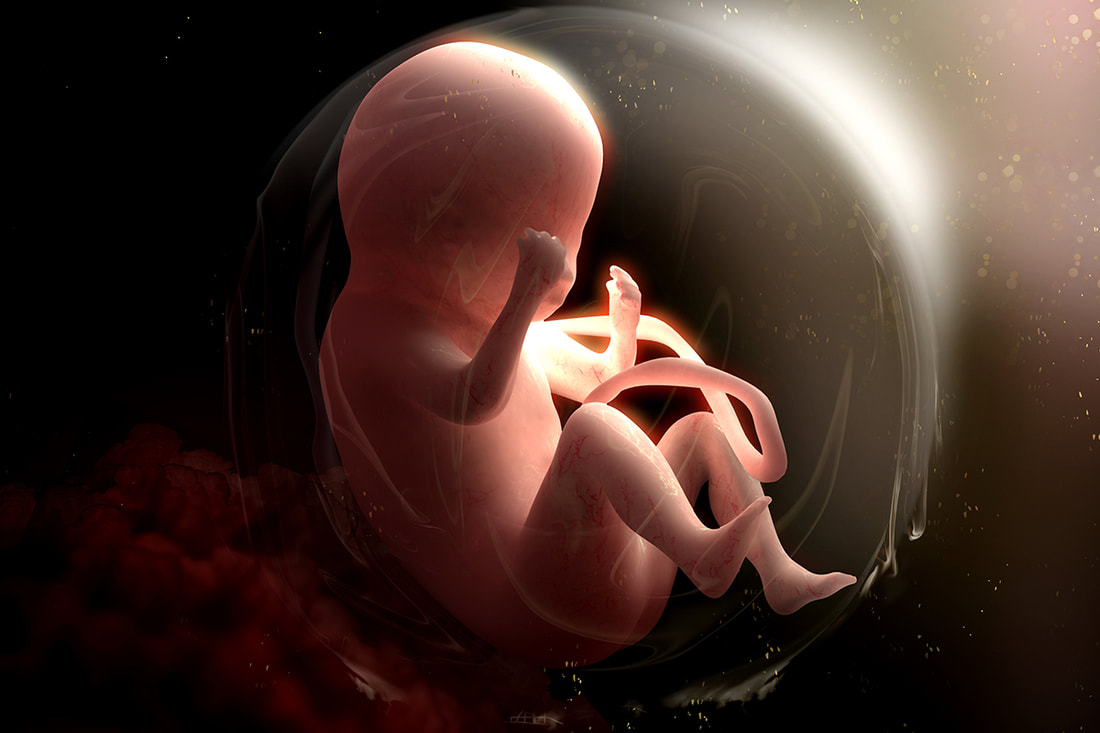 Purpose of our existence The key to understanding the purpose of humankind’s existence lies in the verse of the Quran where Allah ﷻ informs us why He created us: “And [tell them that] I have not created the jinn (invisible beings) and men to any end other than that they may [know and] worship Me. No sustenance do I ever demand of them, nor do I demand that they feed Me: for, verily, God Himself is the Provider of all sustenance, the Lord of all might, the Eternal!”[1] Muhammad Asad in his Message of the Quran comments on this verse: “Thus, the innermost purpose of the creation of all rational beings is their cognition (maarifah) of the existence of God and, hence, their conscious willingness to conform their own existence to whatever they may perceive of His will and plan: and it is this twofold concept of cognition and willingness that gives the deepest meaning to what the Qur’an describes as "worship" (‘ibadah). As the next verse shows, this spiritual call does not arise from any supposed "need' - on the part of the Creator, who is self-sufficient and infinite in His power, but is designed as an instrument for the inner development of the worshipper, who, by the act of his conscious self-surrender to the all-pervading Creative Will, may hope to come closer to an understanding of that Will and, thus, closer to God Himself.”[2] In a hadith e qudsi (sacred tradition), Prophet Muhammad ﷺ informed that Allah ﷻ said: “I was a hidden treasure; then I wished to become known. Then I created the creation, so that I may be known.”[4] These words help us better understand what Asad explained, that the ultimate purpose of human existence is to know Allah ﷻ by accepting His will through obedience of His commandments through what He revealed which eventually causes us to be closer to Him, and understanding Him, ultimately fulfilling the purpose of our existence and benefiting us in this world and the hereafter. A treasure that is hidden which one seeks is worth seeking for when found gives abundant happiness and joy, and the state of inner joy and happiness that humankind seeks on earth is truly and only possible through accepting will of Allah ﷻ. A glimpse of such realization may be understood in the words of Hazrat Ali Ibn Abi Talib (alaihi salaam) who while worshiping would say: “Oh Allah I worship You not because I greed your paradise, Oh Allah I worship You not because I fear your hell fire. I worship You because You are worthy of worship.” Reference: [1] Al Quran 51:56 – Asad Translation [2] Surah Adh-Dhariyat - Asad 1980 [3] A term used for saints in Islamic tradition. [4] Not found in the authenticated books of hadith. Widely quoted in sufi gatherings.  Islamic Roots of Sigmund Freud's Psychoanalytical Theory Human Soul - Modern Psychology calls it Psyche, Islam divides it in to Nafs (Evil Commanding Soul) and Ruh (Spirit or Upper Soul). Allah ﷻ created this for our intellectual and spiritual progress, which ultimately fulfills the purpose of our existence. Modern psychology divides Psyche in to three parts as per Psychoanalytical Theory of Sigmund Freud. The following analysis proves Islamic roots of Freudan Theory: Id – Ego – Superego Dr. Israr Ahmad, 21st century Islamic scholar, theologian and philosopher compares the Id - Ego - Superego to Islamic concepts of Nafs - Qalb (The Heart) – Ruh. The explanation under each is interestingly also found, with much details, in the classical work called Ihya Ulum id-deen of Imam Ghazali[1]. Id - Demands immediate satisfaction of its desires to fulfill its bodily needs/wants of food/sexual drive or whatever desires occur from it. Dr. Israr refers to Nafs as the primal instinct just like the Id is hedonistic; it seeks pleasure. Imam Ghazali calls it passion carrying evil attributes such as anger, greed, jealousy etc. Struggle (jihad) against its tendencies is called greater struggle (jihad al-akbar) in Islam. As per Al Quran 12:53 unrestrained obedience to it results in soul taking the form of Nafse Amara Bissu (Evil Commanding Soul). Ego - Judgmental before action and intervenes between the Id and its object of satisfaction. It works based on reality principle i.e. analyzes external factors and their impact to prevent psyche from blindly following desires of Id. The Qalb (heart) according to Dr. Israr is like Ego, in a perpetual state of change, pulled by Nafs on one side and Ruh on the other. Imam Ghazali says with Qalb we also carry Aql (Intellect), situated in the Soul, whose content and attribute are Knowledge and Will, which determine the result of our choices and actions whether good or bad, then either accepts them or rejects. Altogether, Qalb and Aql are equivalent to Freudian's Ego. When Soul remains imperfect, continues to correct itself when wrong or accuse itself every time it disobeys, it takes the form of Nafse Luwwamah (the [self-] reproaching soul) as per Al Quran 75:02. Superego - The Super-ego is the moral component of the psyche according to Freud. It contains internalized societal and parental standards of “good”, “bad”, “right” and “wrong” behavior we learn consciously or unconsciously. According to Ghazali this is Fitrah (Nature) referring to prophetic hadith that states: "No child is born except on Al-Fitra (Islam) and then his parents make him Jewish, Christian or Magian." Implying upbringing forms our character, influencing our decisions and outlook later in life. This is equivalent to Superego of Freudian Theory which assists the Ego in restraining Id but the restraining influence depends on upbringing factors. The Imam claims that restraining influence comes when soul gains spiritual power and knowledge through inspiration (ilhaam) as well through learning & efforts. He says continuous opposition of the lower tendencies of the Nafs removes passion, adopts angelic nature of Ruh (upper soul), assumes calmness and becomes Nafse Mutmainna (soul at peace) as per Al Quran 89:27. Similarity of Ghazali's analogy on controlling Nafs with Sigmund Freud's analogy of controlling Id. Imam Ghazali says, “Intellect is like a rider, greed like a horse and anger like hunting dog. When rider (Aql) is expert and his horse and dog (Nafs) are trained, success can be obtained in hunting. When rider is inexperienced, horse disobedient and dog biting then they do not obey him”[2] Sigmund Freud provides a similar analogy explaining struggle between Id and Ego: “Thus in its relation to the Id, Ego is like a man on horseback, who has to hold in check the superior strength of the horse; with this difference, that the rider tries to do so with his own strength while the Ego uses borrowed forces. Often a rider, if he is not to be parted from his horse, is obliged to guide it where it wants to go; so in the same way the Ego is in the habit of transforming the Id's will into action as if it were its own.”[3] References: [1] Abu Ḥamid Muḥammad ibn Muḥammad aṭ-Ṭusi al-Ġazali; latinized Algazel; (CE 1058 – 1111). One of the very renowned scholar, jurist, philosopher, mystic of Islam. [2]CHAPTER I - Soul and its attributes - Ghazzali 1993 [3] Psychoanalysis - University 2003 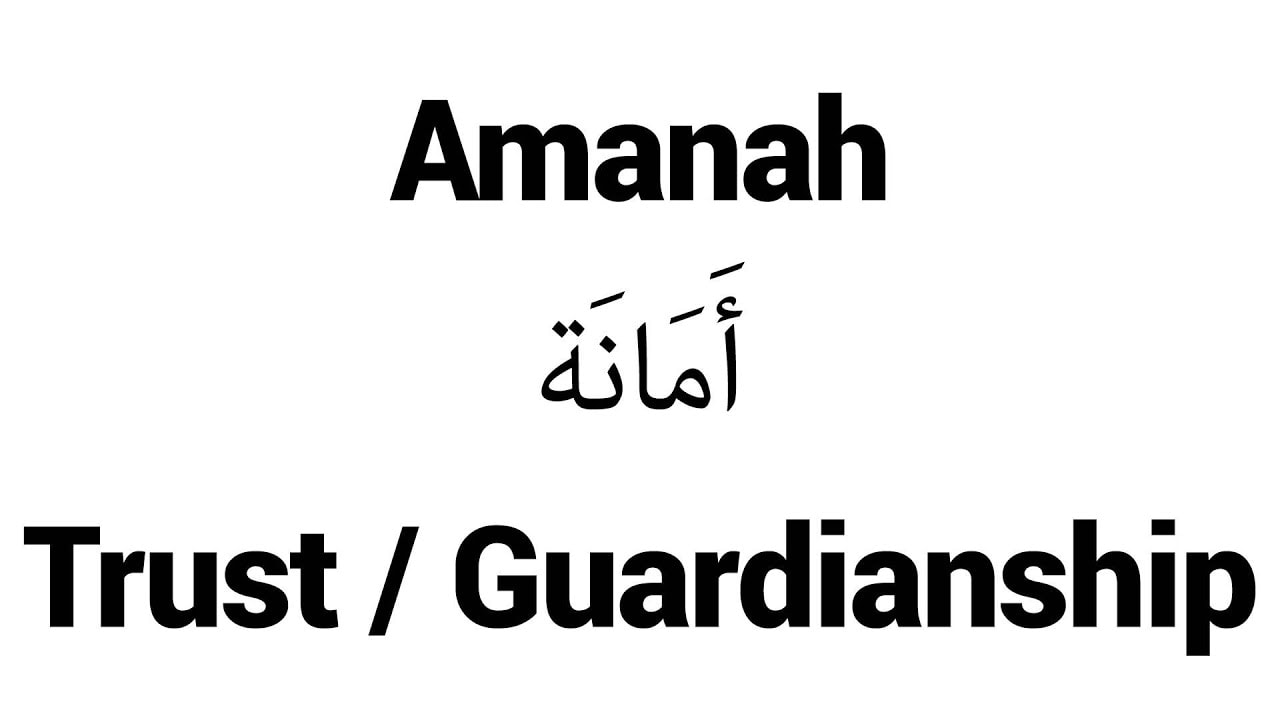 Why only humankind will be judged? If we observe our own creation, the fact is as bright as a daylight that humans are in control of the resources of this planet and make use of them as they wish to. Other creation apart from humans such as animals, plants, birds etc. do not inhabit and make use of the planet as humans. This is the biggest fact that humans are intelligent beings and therefore more worthy of handling this planet on behalf of Allah ﷻ than any other creation of His. This ability of humans is a trust that Allah ﷻ has placed on our shoulders for which we will naturally be accountable. The Quran confirms this for us when Allah ﷻ refers to this burden as Amanah i.e. ‘A Trust’ that He handed over to Adam (alaihi salaam) and his progeny because we have the capacity and intelligence to carry it as opposed to other creation: “Verily, We did offer the trust [of reason and free will] to the heavens, and the earth, and the mountains: but they refused to bear it because they were afraid of it. Yet man took it up, for, verily, he has always been prone to be most wicked, most foolish.”[1] The scholars of Islam say that the wording in the verse “prone to be most wicked, most foolish” means that the one who has the potential to become wicked can also be just and deliver justice and the one who is foolish and ignorant can also carry knowledge and wisdom. This trust makes us sentient and evolutionary beings by providing us the gift of free will and reason with which we have the ability to progress intellectually and spiritually unlike other creation that is stagnant in its nature devoid of the potential to develop. It is one of a kind blessing Allah ﷻ reminds us so we are grateful: "And had it been Our will [that they should not be free to choose between right and wrong], We could surely have given them a different nature [like animals or plants and trees rooted] in their places (or in their instincts), so that they would not be able to move forward, and could not turn back."[2] Therefore the potential in us to act justly and carry knowledge and wisdom is why humankind were handed this trust. After gifting us with intellect and reason, Allah ﷻ send messengers and prophets to remind and explain exactly how we need to take care of that trust. They also made us wary of what are things that can lead towards our destruction in this world, and if not here then definitely we will have to face it in the hereafter, as Allah ﷻ created this life only to test us. A hadith of Prophet Muhammad ﷺ tells us how the amanah has been distributed among humans in any particular nation. It may shed some light on how each of us will be accountable for what is under their authority and answerable based on their individual capacity to discharge their responsibilities: “Each of you is a shepherd and each of you is responsible for his flock. The amir (president) who is over the people is a shepherd and is responsible for his flock (country); a man is a shepherd in charge of the inhabitants of his household and he is responsible for his flock (family); a woman is a shepherdess in charge of her husband's house and children and she is responsible for them; and a man's slave (or employee) is a shepherd in charge of his master's (or employer’s) property and he is responsible for it. So each of you is a shepherd and each of you is responsible for his flock."[2] References: [1] Al Quran 33:72 – Asad Translation [2] Al Quran 36:67 - Asad Translation [2] Sunan Abi Dawud 2928 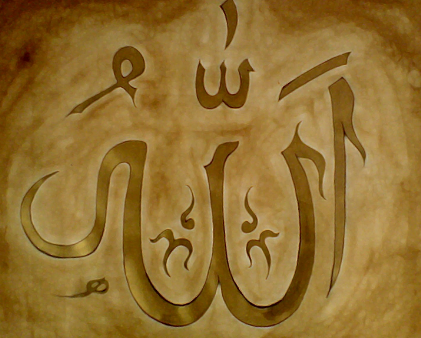 Did Allah create Adam (a.s) with physical senses of body? Indeed Prophet Muhammad ﷺ taught us that Allah ﷻ created Adam in His own image however, this does not mean in physical appearance because Allah ﷻ said about Himself “There is nothing like Him”[1]. There are two prophetic hadith that inform about the creation of Adam (alaihi salaam) being in the image of Allah ﷻ: “…Allah created Adam in His own image (wajh).”[2] In another ones it says, “Allah, the Exalted and Glorious, created Adam in His picture (surah) with His length of sixty cubits.”[3] Before we discuss how Adam (a.s) was created in Allah’s image we first need to understand what do terms like ‘image’ and ‘picture’ imply in the Arabic language. In both ahadith the terms used for ‘image’ and ‘picture’ are wajh and surah. In their most basic meaning these two terms mean ‘face’. But wajh has also been used by Allah ﷻ in the Quran for Himself: “but forever will abide Your Sustainer’s Self (wajh), full of majesty and glory.”[4] Asad comments on this verse and said: “ ‘face’, or ‘countenance’, a term used metonymically in classical Arabic is also used to denote the ‘self’ or ‘whole being’ of a person — in this case, the essential Being, or Reality, of God.” As per Edward Lane’s Arabic-Lexicon the term surah means: “by which a man is especially distinguished, consisting in reason and thought and other distinctive attributes: a quality, an attribute, a property; or a description, as meaning the aggregate of the qualities or attributes.”[5] Since the terms wajh and surah are interchangeable and refer in their wider meaning to the whole being of a person with distinctive qualities and not just ‘a face’ in their basic meaning, it implies that Adam (a.s) and through him all his descendants are carrying within them special qualities and attributes directly from Allah ﷻ that makes them a distinct being as opposed to all other creation. This is confirmed and better understood in the light of a verse of the Quran pertaining to Adam’s creation where Allah ﷻ said to the assembly of angels: “Behold, I am about to create a human being out of clay; and when I have formed him fully and breathed into him of My spirit, fall you down before him in prostration!”[6] The verse teaches that first Allah ﷻ created Adam’s body and then He breathed His ruh (spirit) in to him. The angels through the symbolic act of prostration honored him once the ruh (spirit) of Allah ﷻ was placed in him and not before. This special act of honor from Allah ﷻ explains what makes us a special creation as opposed to all other creations. The attributes of Allah ﷻ placed in to Adam (a.s) and his descendants is due to His ruh (spirit) in our body! These beautiful attributes of Allah ﷻ are also referred as 99 Divine Names, as explained here. These are encouraged and observable in our behavior such as being kind (Al-Rauf), being generous (Al-Karim), being merciful or having mercy, judging righteously (Al-Hakam), establishing and maintaining authority (Al Jabbar), being knowledgeable (Al Aleem), we see and hear and He is All Seeing (Al-Baseer ) and All Hearing (As Sameeh), He is Forbearing and Gentle (Al-Haleem) and so should we. In simple words, humans are supposed to imitate Allah ﷻ is His behavior towards His creation and the potential to imitate Him has been placed within us. This potential to imitate Allah ﷻ can only be achieved through a continuous struggle against the opposing tendencies placed within us called Nafs (evil inclinations of our lower soul) usually translated as “soul” (different from upper soul or spirit). In Islam this struggle is called jihad and is a greater form of struggle. This is one of the purposes of creation of Adam (a.s) and all humankind and explains the prophetic hadith that Adam (a.s) was created in the image of Allah ﷻ. At this point it is also important to mention that there are negative attributes that Allah ﷻ has disliked for Himself and in our daily jihad (struggle) we are to dislike them and actively oppose them. Such as in a hadith e qudsi (sacred tradition) we are told by Prophet Muhammad ﷺ that said Allah ﷻ said: “My Mercy prevails over My anger.”[7] It is due to this that the Prophet ﷺ said: “Anger comes from the devil, the devil was created of fire and fire is extinguished only with water; so when one of you becomes angry, he should perform ablution.”[8] Ablution keeps us calm and purifies us physically which is loved by Allah ﷻ as one His beautiful divine name is The Pure, The Holy (Al Quddus.) In another hadith e qudsi we are informed that Allah ﷻ said: “Verily I have made oppression unlawful for Me and for My servants too, so do not commit oppression.”[9] Since He forbade anger and oppression, we are forbidden to imitate such negative characteristics even if it is a little and all this explains for us the purpose of our creation. As per teachings of Tasawwuf (Islamic Spirituality)the ones who struggle against the negative tendencies and attempt to attain perfection in this manner may reach a status called Al-Insan Al-Kamil [10], “the person who has reached perfection” i.e. a status attained by Prophet Muhammad ﷺ. References: [1] Al Quran 42:11 [2] Sahih Muslim 2612 e [3] Sahih Muslim 2841 [4] Al Quran 55:27 – Asad Translation. [5] An Arabic-English Lexicon by Edward William Lane - Lane 1863 [6] Al Quran 38:71-72 [7] Jami at-Tirmidhi 3543 [8] Sunan Abi Dawud 4784 – Ablution is called wudu which is done five times a day before each obligatory salah. However it is was encouraged by the Prophet ﷺ even outside salah as it keeps one pure. [9] Bulugh al-Maram Book 16, Hadith 1537 [10] In sufi terminology al-Insaan al-kamil means a perfect human being. The prophets and saints are able to reach it after continuous lifelong struggle against the evil tendencies of nafs (soul). 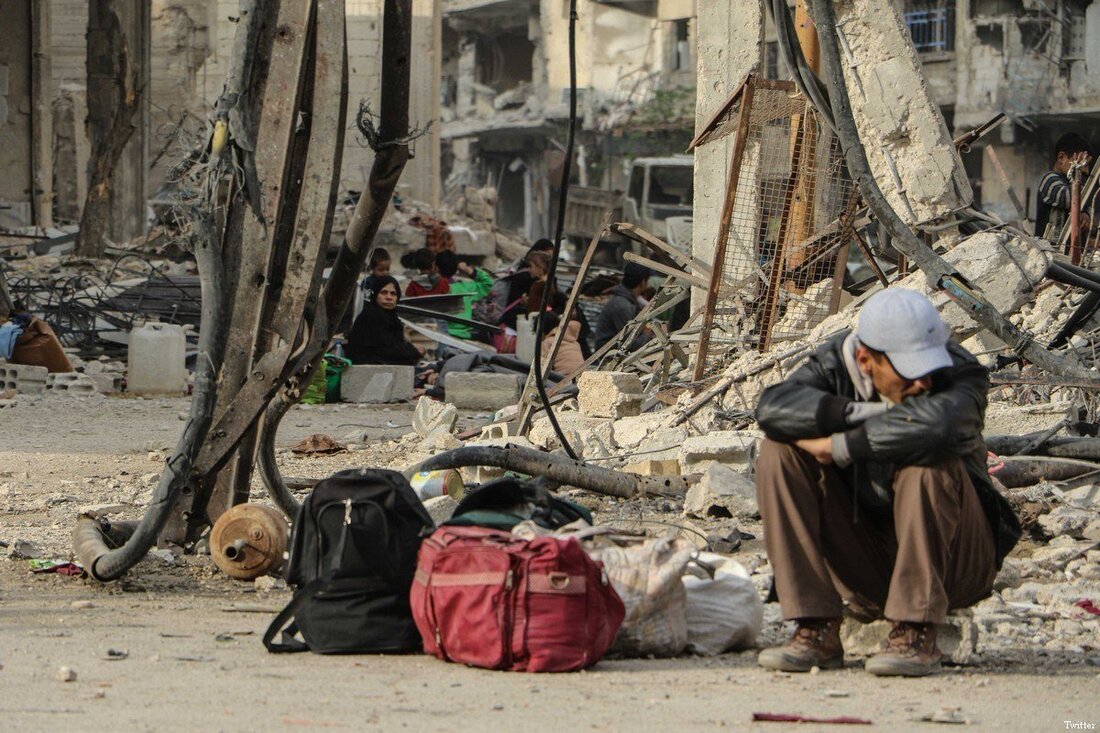 Syrian civilians caught in the middle of conflict Purpose behind trials and difficulties Allah ﷻ says that He created this life for nothing but a test and trial for humankind: “[He] who created death and life to test you [as to] which of you is best in deed - and He is the Exalted in Might, the Forgiving.”[1] The earth with its major and minor sufferings, difficulties and problems is what makes it a perfect testing ground. Had it been a complete peaceful place it would not have fulfilled the purpose of our existence on earth. These difficulties, trials and tribulations more or less that each human experiences are supposed to make them strong and near perfection as long as they exercise patience when facing them and remain content with Allah’s will. Allah ﷻ asks the believers: “Do people think that they will be let go merely by saying: “We believe,” and that they will not be tested?”[2] In this rhetorical question, Allah ﷻ uses the Arabic term fitnah which is translated as ‘test’. As per Lanes dictionary fitnah means: “the melting of gold and of silver in order to separate, or distinguish, the bad from the good.”[3] The example of trials is like the touchstone, and the example of humans that of a gold rock with all its impurities. What does a touchstone do when a goldsmith keeps rubbing it to remove the impurities? It gradually brings out its shine! The purpose of such trials and tests is to purify one and make them polished internally. This internal polish increases our knowledge of Allah ﷻ and assists us to gain spiritual closeness, which helps us to better understand Him and His purpose for our lives. In Islam, the greatest in the sight of Allah ﷻ are the Prophets among humankind that is due to the suffering they bear and patience they display at them. Since they bear the most suffering their status near Allah ﷻ in this world and the hereafter are much greater. After the prophets everyone else is tested according to the level of their faith. A narration of Prophet Muhammad ﷺ explains this: Musab bin Saad (radiAllahu anhu) narrated from his father that a man said: “O Messenger of Allah ﷺ which of the people is tried most severely?” He said: “The Prophets, then those nearest to them, then those nearest to them. A man is tried according to his religion; if he is firm in his religion, then his trials are more severe, and if he is frail in his religion, then he is tried according to the strength of his religion. The servant shall continue to be tried until he is left walking upon the earth without any sins.”[4] Suffering due to calamities, trials etc. whether it befalls the Prophets or any other among the believers, helps them gain higher ranks and proximity to Allah ﷻ in this life and the hereafter. In another prophetic narration it is said that spiritual closeness gained with Allah ﷻ becomes so dearer to some righteous among the believers that when suffering befalls them: “One of them will rejoice at calamity as one of you would rejoice at ease.”[5] A sufi (Islamic) saint was inquired about how he was patient at his suffering, to which he responded: “How can I complain when (it is said in the Quran) : “Allah is with the patient.”[6] The closer they feel to Allah ﷻ the more shining their souls become. They fulfill the purpose of a lamp in darkness. Such righteous ones become the deputies of the prophets on earth. The purpose of suffering is to bring out that shine in us as long as we bear patiently and keep remembering Allah ﷻ. However one very important fact that Quran teaches us about difficulties and trials is that: “Allah does not burden anyone more than they can bear.”[7] References: [1] Al Quran 67:02 – Asad Translation. [2] Al Quran 29:02 [3] Lane 1863 - http://lexicon.quranic-research.net (quranic-research.net) [4] Jami at-Tirmidhi 2398 [5] Sunan Ibn Majah 4024 [6] Al Quran 2:153 [7] Al Quran 2:286 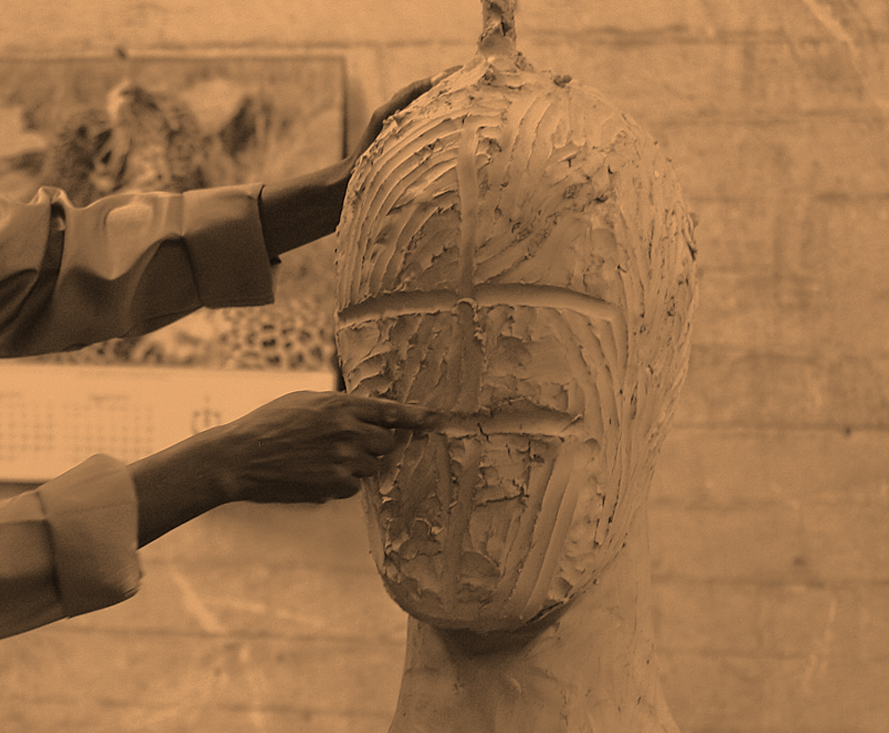 Humankind - A special act of creation The concept that angels are better than humans, would be incorrect according to Islam. Even though the description of the angels and their appearance sounds supernatural and impresses upon human minds such as them having ‘wings’ and made of 'nur (light)’ and traveling faster than the speed of light between the heavens as explained in the section of angels and jinns. The fact that Allah ﷻ made them prostrate humankind is because we are His special creation, created in the best form. If angels were better than humans then Allah ﷻ would have commanded Adam (alaihi salaam) to prostrate before angels and not the other way around: “[For] Your Sustainer said to the angels: ‘Behold, I am about to create a human being out of clay;and when I have formed him fully and breathed into him of My spirit, fall you down before him in prostration!’ Thereupon the angels prostrated themselves, all of them together.”[1] What makes us a special creation is due to His ruh (spirit), infused within us as a result of which we carry the gift of intellect to make the correct choices using our reason and free will. The potential to imitate Allah's divine names is expressed in our behavior when we correctly exercise our reason and freewill; make the right choices with the assistance of divine guidance sent by Allah ﷻ, and keep patient in difficulties while being grateful and content at whatever we have. This struggle is what makes humans honored, it helps us to spiritually and intellectually progress, and is the most important aspect of our creation, something angels do not possess. Once we imitate the lives of the prophets (to the best of our ability) then Allah’s divine attributes (names) are displayed in our behavior such as being forgiving, merciful, kind, and generous. We also display the acts of our creator such as inventing, drawing, building and formation just as He is The Creator (Al Khaliq), The Initiator (Al Bari), The Supreme Fashioner (Al Musawwir). He is the Most Knowledgeable (Al Aleem) and we also display the attribute of learning and gaining knowledge. He is Holy and Beautiful (Al Quddoos) and we too share these characteristics by physically and internally purifying ourselves, our hearts from all that opposes truth and wisdom. One of His attributes is Peace (As Salaam) therefore; we are advised to spread peace (salaam) on earth among His creation and also gain peace by accepting His will i.e. Islam, which means Self-Submission. For more details on this topic please also refer to two more posts: 99 Divine Names of Allah ﷻ & Allah ﷻ Created Adam (a.s) In His Own Image. References: [1] Al Quran 38:71-72 – Asad Translation - Allah ﷻ orders the angels to pay respect to His new creation i.e. Adam. 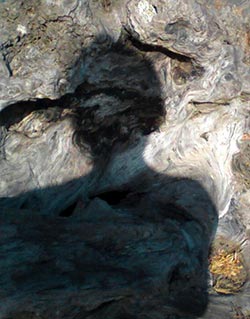 Satan's role in our lives Allah ﷻ is a creator, He creates what He wills and each creation serves its own purpose. No creation on this earth or in the entire universe has been created without a purpose. Humankind has its own purpose to serve, satan has its own purpose to serve, animals, plants, insects etc. they all serve their individual purposes. Satan is one of the jinns (invisible beings), who like humans carry free will to either obey or disobey the will of Allah ﷻ. In Islam Allah ﷻ has the pre-eternal knowledge of His entire creation including satan, and also Adam (alaihi salaam) and his descendants. Satan’s or Adam’s disobedience in the pre-eternal knowledge of Allah ﷻ does not mean the predestination of their acts. Their acts of obedience or disobedience are based on their God given free-will hence the concept of rewards or punishment and blessed or unfortunate, in this life or hereafter. Rewards or punishments, paradise or hellfire in hereafter would make no sense if all acts were predestined. By exercising his free will, satan chose to disobey the commandment to show respect to Adam (a.s) . He became arrogant and decided to disobey when Adam (a.s) and his descendants were honored with the title of Allah’s best creation and to become His successors on earth. The Islamic perspective does not necessitate the creation of satan for humankind test on earth, which even many Muslims mistakenly think. It is very true that satan’s disobedience and challenge to Allah ﷻ to misguide humankind is mentioned in the Quran and fits in the overall picture of humanity’s test on earth. However, that does not in any way imply that satan is our greatest enemy and test. In fact our greatest enemy is our own Nafs (evil commanding soul), the opposing force within each human which invites us towards disobedience of Allah ﷻ (for more info please read The Mystery of Human Soul). Allah ﷻ created duniya[1](materialistic word) as a testing ground in which our Nafs plays the major role of keeping us attached to it and forgetting the hereafter. Yes, satan too is our enemy and contrives to misguide many among humankind and jinns, yet his influence over us in relation to our own nafs is very nominal. The Quran teaches that on the Day of judgment satan will admit his success in misguiding many, but will attribute that success not to his sole efforts, but to our nafs (evil within our soul): “And satan will say when the matter has been concluded (on the day of judgment), ‘Indeed, Allah had promised you the promise of truth. And I promised you, but I betrayed you. But I had no authority over you except that I invited you, and you responded to me. So do not blame me; but blame yourselves (Anfus plural of Nafs). I cannot be called to your aid, nor can you be called to my aid. Indeed, I deny your association of me [with Allah] before. Indeed, for the wrongdoers is a painful punishment.’”[2] Allah ﷻ in His Eternal Mercy has not given satan the free hand to control us, he has no power over us. All he can do is invite us i.e. our souls and if we obey their evil inclinations, then we are led towards our own ruin. But every time we reject the temptation it creates within us to oppose Allah’s will, we achieve 'rewards' and those rewards are ultimate spiritual development the effect of which we see in our lives in the face of increased guidance, faith and nearness to Allah ﷻ and in the hereafter it is seen in the state of higher status in Paradise. Even though satan’s existence plays a vital role in our spiritual and intellectual development yet his existence does not necessitate the purpose of humankind creation. Satan is just another creation of Allah ﷻ like many others and has been created to serve his individual purpose and nothing more. References: [1] In classical Arabic, the term duniya in its broader meaning comprises what we call the temporal world and its temptations as opposed to everlasting hereafter and its blessings. [2] Al Quran 14:22 The human heart is the most important part of our body and its continuous functioning is what keeps our body alive and active, a minor injury caused internally or from outside of the body to this piece could stop its functioning and cause immediate death. It is a scientific fact that all the blood in the entire body consistently circulates through this one muscle, it keeps the entire body functioning, it is as we can say if the entire body was a state then the capital of the state is the heart. If the capital was suddenly taken over or destroyed, then all organs of the state would cease to function and result in collapse of the entire state.
Pulmonary Circulation in Islamic Medicine This most important function of the heart that keeps all organs alive is the Pulmonary Circulation, which brings deoxygenated blood from the entire body into the right side of the heart and from there into the lung. The purified and oxygenated blood from the lung flows to left side of the heart which pushes blood out to the rest of the body. In the world of medical science the discovery of this function is largely attributed to William Harvey, a 17th century physician and his European predecessors after their investigation of Greek physician Galen’s observations of the hearts and blood circulation.[1] This common notion eclipses the 400 year earlier finding of the circulation system by a 13th century Islamic Scholar, philosopher and physician named Ibn Nafis (Ala ad-Din Abu al Hasan Ali Ibn Abi-Hazm al Qarsh). Ibn Nafis had already studied Galen’s theory and concluded that movement of blood initiates from the right side of the heart then flows to the lungs, then circulates back to the left side. For the first time in the history of medicine, in addition to describing blood circulation, Ibn Nafis stated that blood is refined in the lungs. He also suggested that the spirit that gives life to the heart resides in it.[2] The Islamic scholars and scientists began their medical career by first deriving information from Greek, Persians, Indian, Byzantine sources. They then added to this body of knowledge and accomplished great achievements by their own observation, research and experience. This is how Ibn Nafis’s pulmonary circulation came to be. It was a result of correcting and improving shortcomings of Galen’s research. But what is most important to note that Islamic Scientists assimilated the Islamic medicine, primarily based on guidance from the Quran and Prophetic Sunnah (practices), with their science-based medicine. For instance, 9th century Islamic physician, also a heart specialist, Al Razi (Abu Bakr Muhammad ibn Zakariyya al-Razi – Rhazes) made historical contribution in the medicine field. He listed certain principles for the preservation of health which included moderation and balance in one dietary lifestyle, adopting an active physical lifestyle, avoiding sins and evils acts, and balancing one’s will power with one’s ability. These principles are all part of Islamic medicine. [3] Importance of Healthy Heart The amount of work that the heart does is incredible. At rest, a normal heart performs 75 beats/minute, pumping around 5.25 liters of blood, thus circulating the entire blood supply throughout the body once every minute. To appreciate this incredible role, it is enough to note that the brain cells could be irreversibly destroyed if they were deprived of the supply of oxygenated blood only for five minutes.[4] So we can see – as Prophet Muhammad ﷺ told us – on this small muscle depends the life of the entire cells in the body: “Beware! There is a piece of flesh in the body if it becomes good (reformed) the whole body becomes good but if it gets spoilt the whole body gets spoilt and that is the heart.”[5] Islam makes important recommendations to keep our heart and circulatory system healthy, the first of which is physical activity. Ibn Al Qayyim, one of the most important Islamic thinkers in history and major proponents of prophetic medicine in 14th century, said that any organ used regularly in a type of physical activity grow stronger and healthier. According to American Heart Association, one of the most important recommendations to enjoy healthy heart is to keep physically active. Even 30 minutes of daily physical activity/aerobic exercise will benefit the heart: reduces risk of heart disease by improving blood circulation, keeping weight under control, boosting energy and releasing tension. Physical exercise also reduces blood cholesterol levels and controls hypertension, strengthening body muscles including the heart. The salaah (5 times prayers) also allows stretching of muscles which enhances blood circulation through gently massaging blood vessels involved. During prostration alleviates pain of varicose veins and reduce the risk of thrombosis (formation of blood clots) in the legs. The bowing and prostrating help the pumping of blood by the heart. The movements of neck further vitalize the blood vessels that deliver blood to the brain. So, prayer not only revives spirit, but also energizes body and mind. In addition to exercise, Islamic medicine makes certain dietary recommendations proven healthy for heart such as tender meat fish (Al Quran 16:14), pomegranates (Al Quran 55:68), grapes and many others[6] Just as the heart is beneficial for the entire body, the Prophet ﷺ also emphasized a healthy believer was good for the environment: “A believer who is strong (and healthy) is better and dearer to Allah than the weak believer, but there is goodness in both of them.”[7] How Emotions & Actions Impact Hearts No one can deny the emotional, spiritual aspects attributed to the heart. Stress, depression, worry, anger and many other negative feelings burden the heart and weaken its performance. Ibn al Qayyim, in his famous work on prophetic medicine Al-Tibb al-Nabawi, recommended practicing love, joy, kindness, compassion, patient, perseverance and courage as best type of sports for the heart. He also recommended ethical and moral behaviors and righteous acts as great healers.[8] Such morals and ethics are remedies for the spiritual diseases of the heart and spiritually strong hearts help defeat physical illnesses. This is precisely one of the main purposes for which the Quran was revealed and the Prophet ﷺ was given to us as an example to follow. One of the Divine Names of Allah ﷻ is Al Shafi (The Healer) and He says in the Quran: (Al Quran 10:57) “O mankind! There has come to you a good advice from your Lord (i.e. the Quran, enjoining all that is good and forbidding all that is evil), and a healing for that (disease of ignorance, doubt, hypocrisy and differences) which is in your chests (i.e. hearts), - a guidance and a mercy (explaining lawful and unlawful things) for the believers.” Modern science considered the heart nothing more than a piece of flesh that pumps blood throughout the body and that learning involves primarily the nervous system, and secondarily, the immune system (that recognizes diseases it has defeated). But that is being updated especially with the consideration being given by doctors to the emotional wellbeing of their patients. A very interesting research done on patients that underwent heart transplant surgery revealed that after their surgery they exhibited personality changes of their donors! The evidence was gained during open-ended interviews with volunteer transplant recipients, recipient families or friends, and donor families or friends. Following surgery, the recipients reflected changes in personality and behavior of the donors including food, music, personal career preferences etc. A 17yr old African male donor’s heart was transplanted to an elderly white male. During interviews the recipient’s wife revealed how the recipient now loves classical music, something he never liked before. The donor’s family revealed that the black teenager did not like rap music, something that the white couple thought. In fact, he loved classical music and died in a shooting holding a violin while heading to his music class. This reveals for us a lot about the heart that what the Quran and prophetic hadith teach that our lifestyles can leave their positive or negative imprints on our hearts.[8] This is also a wakeup call for anyone planning on getting heart transplant surgery. The recipient may unknowingly adopt the donor’s lifestyle! Securing Our Hearts from Temptations (Fitnah) The Quran and Prophetic hadith teach that hearts are influenced and shaped (become good or bad) by one’s actions and intentions. The Prophet ﷺ warned us that in the last age (i.e. the age before Judgment day) the hearts will be exposed to trials and temptations (fitnah) and become tainted by them: “Temptations will be presented to men's hearts as reed mat is woven stick by stick (الْحَصِيرِ عُودًا عُودًا) and any heart which is impregnated by them will have a black mark put into it, but any heart which rejects them will have a white mark put in it. The result is that there will become two types of hearts: one white like a white stone which will not be harmed by any temptation, so long as the heavens and the earth endure; and the other black and dust-coloured like a vessel which is upset, not recognizing what is good or rejecting what is abominable, but being impregnated with passion.”[9] حَصِيرٌ generally translated in English as “a mat woven of reeds” also means “captivates hearts in a manner peculiar to it”[10] Leading Scholar Sheikh Hamza Yusuf interprets the Arabic wording حَصِيرٌ to a TV set and claims that “reed mat is woven stick by stick” is a reference to the vertical/horizontal grid lines placed on each other like mats, part of manufactured TV screen. It is these screens that captivate the hearts by placing negative impressions through time waste entertainment, disinformative news, immoral music, airing of unethical divisive politics, violent movies, video game addiction, etc.[11] Whoever consistently exposes their hearts to such temptations will fall under their influence. They will gradually lose their sense of right and wrong and become like animals following their passions (basic instincts), led towards harming themselves emotionally and physically. Allah ﷻ condemns such hearts that allow themselves to blindly fall for the temptations: (Al Quran 5:41-42).…for, if God wills anyone to be tempted to evil (Fitnah), you can in no wise prevail with God in his behalf. It is they whose hearts God is not willing to cleanse. Theirs shall be ignominy in this world, and awesome suffering in the life to come - those who eagerly listen to any falsehood, greedily swallowing all that is evil!” (Asad Translation)- The Quran teaches that a group of Jewish people were transformed into apes because they were tempted towards disobedience of Allah ﷻ and blindly followed their passion: (Al Quran 2:65-66) "Be apes despised and hated by all.” Some of the Prophet’s companions commented that this was an inner transformation of their hearts and not their bodies. A very important Surah that Prophet ﷺ advised for the Muslims to recite is Surah Al Kahf (chapter 18), especially in the last age. It teaches about ashab e kahf (young men of the cave) who used their reason and made efforts to protect themselves from the environment of kufr (disobedience & disbelief) as a result of which Allah ﷻ increased their guidance and strengthened their hearts: (Al Quran 18:13-14) "They were young men who believed in their Lord, and We gave them more and more guidance. We gave strength to their hearts…” So, our intentions, actions, our emotions, all play a part in shaping our hearts in one way or another and they all are important for the improvement of ourselves. The Islamic science of the heart is very important to understand which helps us to make use of the Islamic medicine, the key for the physical, emotional and spiritual well-being of the hearts. The heart that succeeds on all three levels will succeed in this world and the hereafter: (Al Quran 26:89)…[and when] only he [will be happy] who comes before God with a heart free of evil!" References: [1] Correcting the circulation myth, Lateral Magazine, Dana Crow, August 9, 2017 Philosophy & History, Issue 24 - http://www.lateralmag.com/articles/issue-24/forgotten-discovery-of-circulation [2] Changizi Ashtiyani, Saeed. (2013). The Discoverer of Pulmonary Blood Circulation: Ibn Nafis or William Harvey. Middle East Journal of Scientific Research. 18. 562-568.. 10.5829/idosi.mejsr.2013.18.5.75133 - https://www.researchgate.net/publication/277005637_The_Discoverer_of_Pulmonary_Blood_Circulation_Ibn_Nafis_or_William_Harvey [3] Ayad, Amira, and Jamila Hakam. Healing Body & Soul: Your Guide to Holistic Wellbeing following Islamic Teachings. International Islamic Publishing House (Saudi Arabia) pgs. 24 [4] ibid pg 57 [5] Sahih al-Bukhari 52 – Sunnah.com [6] Ayad, Amira. Healing Body & Soul pg. 58-59 [7] Sahih Muslim 2664 – Sunnah.com [8] Changes in Heart Transplant Recipients That Parallel the Personalities of Their Donors, Paul Pearsall, Ph.D. University of Hawaii, Gary E. R. Schwartz, Ph.D., Linda G. S. Russek, Ph.D., University of Arizona – UNT Digital Library, https://digital.library.unt.edu/ark:/67531/metadc799207/m2/1/high_res_d/vol20-no3-191.pdf [9] Sahih Muslim 144 a – Sunnah.com [10] An Arabic-English Lexicon by Edward William Lane, pg. 0583: Root حصر [11] Shaykh Hamza Yusuf Satellite Television Prophecy, Youtube.com, Jul 26, 2016 - https://www.youtube.com/watch?v=1rFCvOe4OEk The post date does not reflect the actual date. Posted on 1/29/22
مَّا جَعَلَ ٱللَّهُ لِرَجُلٖ مِّن قَلۡبَيۡنِ فِي جَوۡفِهِ (Al Quran 33:4) Allah does not place two hearts in any person’s chest On January 7, Dr. Muhiuddin’s team at the University of Maryland School of Medicine successfully transplanted the heart of a genetically modified pig into a man suffering from a severe heart ailment. “It was my dream, which came true. It’s something I didn’t imagine doing in my lifetime,” Mohiuddin, who is the director of the Cardiac Xenotransplantation Programme at the university, tells TRT World. The 57-year-old patient David Bennett, who received the pig’s heart, is recovering. He might need to stay at the hospital for at least two months before he’ll be able to return to his normal life, says Mohiuddin.[1] With this incident there is a concern among many in the Muslim world who are approaching Islamic scholars to find out if this is permissible, since Khanzeer (Arabic for pig) is considered najas (impure) in Islam. Al-Azhar International Center for Fatwa And the Egyptian Dar Al-Iftaa announced that “although the basic principle in the use of pig or its parts is sanctity, it is permissible to benefit from it and to treat part of its parts, or a member of its organs, provided that the necessity calls for that, and that there is no substitute for it from the pure ones.”[2] Muftis of Jamiatur Rashid Islamic Institute of Karachi in Pakistan have also declared it permissible on the condition that there is no substitute of pig’s organs such as those of cows, goats, camels which fall under the halal (legal) category. Mufti Tariq Masood of Jamiatur Rashid provides evidence in his lecture in favor of this ruling from 4 ayaats of the Quran in total that allow the use of pig in extreme necessity. In the first ayat (Al Quran 6:145) mentions eating of pig and other forbidden animals in the case of extreme hunger when nothing else being available. As for the remaining 3 ayaats (Al Quran 5:03, 2:173, 16:115) they hint towards the use of pig and other forbidden animals in case of extreme necessity which does not include only eating. He says these 3 ayaats point towards use of pig for other purposes as well, and those other purposes can include medical purposes including using a pig’s heart for transplantation.[3] While this evidence may support human use of pig organs such as kidney, liver or bones but can we suggest the same for a pig’s heart, considering that the Quran has chosen the heart to be a focal point of receiving divine guidance (hidayah), knowledge (marifat), inspiration (ilham), insight (firasah) as opposed to other organs of our body? Modern science considers the heart nothing more than a muscle that pumps blood throughout the body and that learning involves primarily the nervous system, and secondarily, the immune system (that recognizes diseases it has defeated). But that is being updated especially with the consideration being given by doctors to the emotional wellbeing of their patients and further researches. Dr. Amira Ayyad a family medicine doctor from California explains in her book on holistic medicine that no one can deny the emotional, spiritual aspects attributed to the heart. Stress, depression, worry, anger and many other negative feelings burden the heart and weaken its performance. She recommends practicing love, joy, kindness, compassion, patient, perseverance and courage as best type of sports for the heart because ethical and moral behaviors and righteous acts are great healers.[4] A very interesting research done on patients that underwent heart transplant surgery revealed that after their surgery they exhibited personality changes of their donors! The research suggests the possibility that memory of a person’s life is stored at the cellular level and may be transferred with the organ. A 17yr old African male donor’s heart was transplanted to an elderly white male. During interviews the recipient’s wife revealed how the he now loves classical music, something he never liked before. The donor’s family revealed that the black teenager did not like rap music, something that the white couple thought. In fact, he loved classical music and died in a shooting holding a violin while heading to his music class. The study also mentions case of recipient named Claire Sylvia, who published a book describing the apparent personality changes she experienced after receiving a donor heart. She reported noticing that various attitudes, habits and tastes. For instance though she was health conscious, upon leaving the hospital she had uncontrollable urge to eat KFC, a food she never ate. Sylvia found herself drawn towards cool colors as opposed to bright red and orange she used to prefer. She began behaving with an aggressiveness that was uncharacteristic of her but turned out to be similar to personality of her donor.[5] This reveals for us a lot about the heart that what the Quran says that our lifestyles can leave their positive or negative imprints on our hearts. What's even more convincing about this research is that every heart belongs to its owner and that a persons heart, even after transplantation reflects the personality of its actual owner rather than the recipient, a fact to which the Quran also brings our attention in the following ayah: (Al Quran 33:4) Allah does not place two hearts in any person’s chest. Nor does He regard your wives as ˹unlawful for you like˺ your real mothers, ˹even˺ if you say they are. Nor does He regard your adopted children as your real children. These are only your baseless assertions. But Allah declares the truth, and He ˹alone˺ guides to the ˹Right˺ Way – The Quran teaches that just as husbands practicing zihar i.e. calling their wives “you are like my mother” in pre-Islamic Arabia, does not really make them their mothers, and by declaring your adopted children as your own children doesn’t make them your real children, similarly a persons heart cannot be claimed by another person because naturally it never belongs to them even if it is placed inside their chest. Hence, if a human heart transplant caused the recipient to reflect the donor’s personality then an animal’s heart can most likely cause a recipient to reflect the nature of that animal. What is the purpose of Heart according to Islam? The Quran teaches that the object of revelation has always been to guide humankind so they can fulfill their purpose of existence. To fulfil that purpose, out of all organs, Allah ﷻ chose their hearts as the agency for communication of that guidance: (Al Quran 3:08) Ya Rabb do not let our Hearts be misguided after having guided them…” – With guidance the heart also becomes the recipient of divine knowledge of Allah ﷻ called marifat which is gained through communion with Him through worship, obedience to His commandments and observing His consciousness (taqwa), that He is watching. If we observe these things we benefit spiritually and physically, and basically that is our purpose of existence. But this purpose gets defeated when our hearts are deprived of guidance. The one factor that obstructs the heart from gaining guidance is our Nafs (lower self, base urges). The Nafs has negative tendencies and inclinations that attract us towards earthly pleasures and distractions. It continuously strives to attach us to the earth and its beauties so we deviate from our purpose and forget all obedience to our Creator. It is because of this why the Sufiyya (Sufi Saints) always emphasize on Greater Jihad (struggle) as the goal of life which is to strive against our own Nafs. This is due to a famous hadith of Prophet Muhammad ﷺ who referred to “The servant’s struggle against his lust (hawah)” as a Greater Jihad as opposed to fighting with arms which he called lesser Jihad (struggle). It is the effects of our Hawa (lust or lower desires) generated from our Nafs which cause distractions to our Hearts and make them heedless as Allah ﷻ says: (Al Quran 18:28) and do not obey one whose heart We have made heedless of Our remembrance and who follows his desire (Hawa) and whose affair is ever [in] neglect." Elsewhere Allah likens a blind follower of his hawah to a dog: (Al Quran 7:176) "… but he clung to the earth and followed his low desire (Hawa) Thus, his parable is that of a dog.” In another instance those who focus only on their lower desires and do not use their reason are likened to cattle (Al Quran 25:43) and such hearts are considered spiritually dead (Al Quran 7:179) even though they may be clinically alive. By these examples Allah ﷻ is teaching that a person whose primary objective is only to follow his hawa (lower desires) and immediate benefits, lowers himself to the level of animals. Like animals he does not use his reason losing the ability to make moral choices that help distinguish between right or wrong, truth or false, good or bad, resulting in his failure to spiritually and morally progress and losing his humanity. This punishment was experienced by some Jews who were transformed into apes and pigs because they followed their desires instead of Allah’s commandments: (Al Quran 5:60) It is those who earned Allah’s condemnation and displeasure—some being reduced to apes and pigs and worshippers of false gods. These are far worse in rank and farther astray from the Right Way.” Some scholars understood this in a metaphorical sense and said that only their hearts were transformed, that is, they were not really transformed into pigs. The pig heart transplantation is definitely a breakthrough in the world of scientific medicine and something that has never happened in human history. But it is important for Muslims to understand the consequences of this surgery because it involves our hearts the only medium of guidance for our lives without which we will be reduced to animals and lose our purpose of life. With pig hearts we may be able to extend our lifespans but we are most likely going to defeat the purpose of our existence. References: [1] Pig-heart transplant pioneer on how breakthrough surgery became possible, TRT World, Saad Hasan, 13 JAN 2022 https://www.trtworld.com/magazine/pig-heart-transplant-pioneer-on-how-breakthrough-surgery-became-possible-53612 [2] "A human with a pig's heart" .. Why is the transfer of organs from animals the hope of contemporary medicine? Teller Report, 1/15/2022, 5:22:48 AM https://www.tellerreport.com/news/2022-01-15-%22a-human-with-a-pig-s-heart%22----why-is-the-transfer-of-organs-from-animals-the-hope-of-contemporary-medicine-.Hye-qCQlaK.html [3] Kiya Khanzeer ka Dil Lagana Jaiz hai? pig heart transplant into human Pakistan Mufti Tariq Masood, https://www.youtube.com/watch?v=KbeyMbN6qu0&t=1s [4] Ayad, Amira, and Jamila Hakam. Healing Body & Soul: Your Guide to Holistic Wellbeing following Islamic Teachings. International Islamic Publishing House (Saudi Arabia) pgs. 24 [5] Changes in Heart Transplant Recipients That Parallel the Personalities of Their Donors, Paul Pearsall, Ph.D. University of Hawaii, Gary E. R. Schwartz, Ph.D., Linda G. S. Russek, Ph.D., University of Arizona – UNT Digital Library, https://digital.library.unt.edu/ark:/67531/metadc799207/m2/1/high_res_d/vol20-no3-191.pdf |
AuthorZaid Shaw Archives
December 2022
Categories |
Proudly powered by Weebly


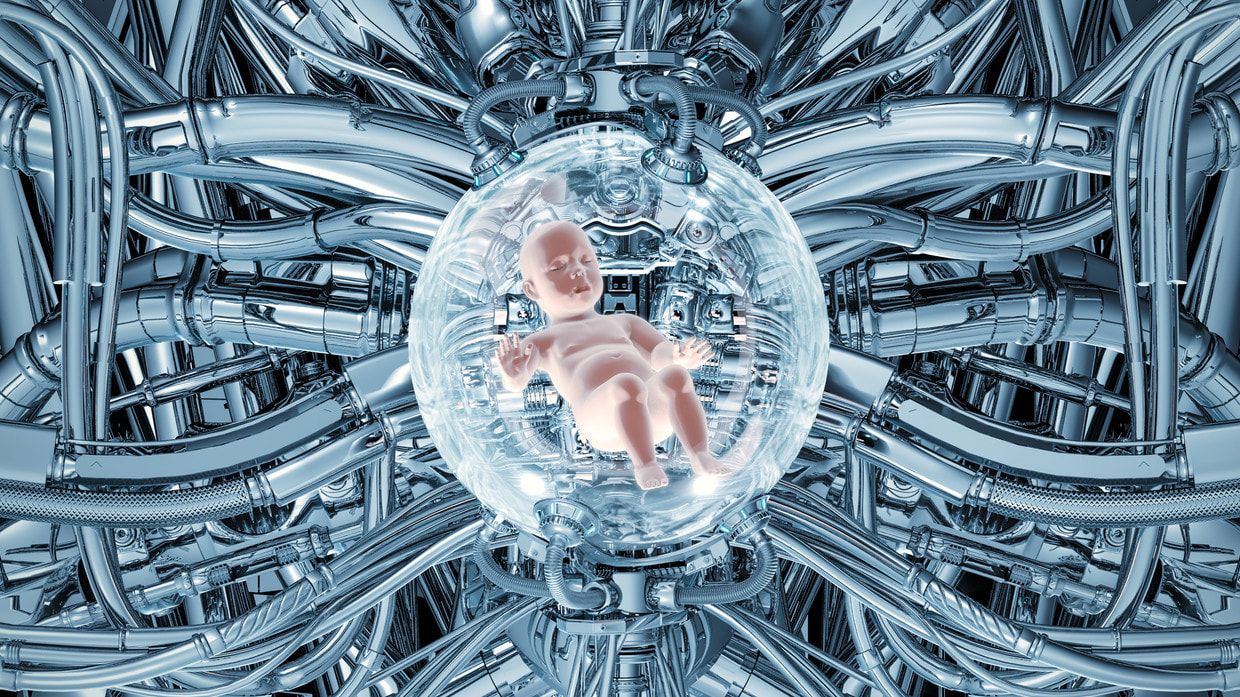
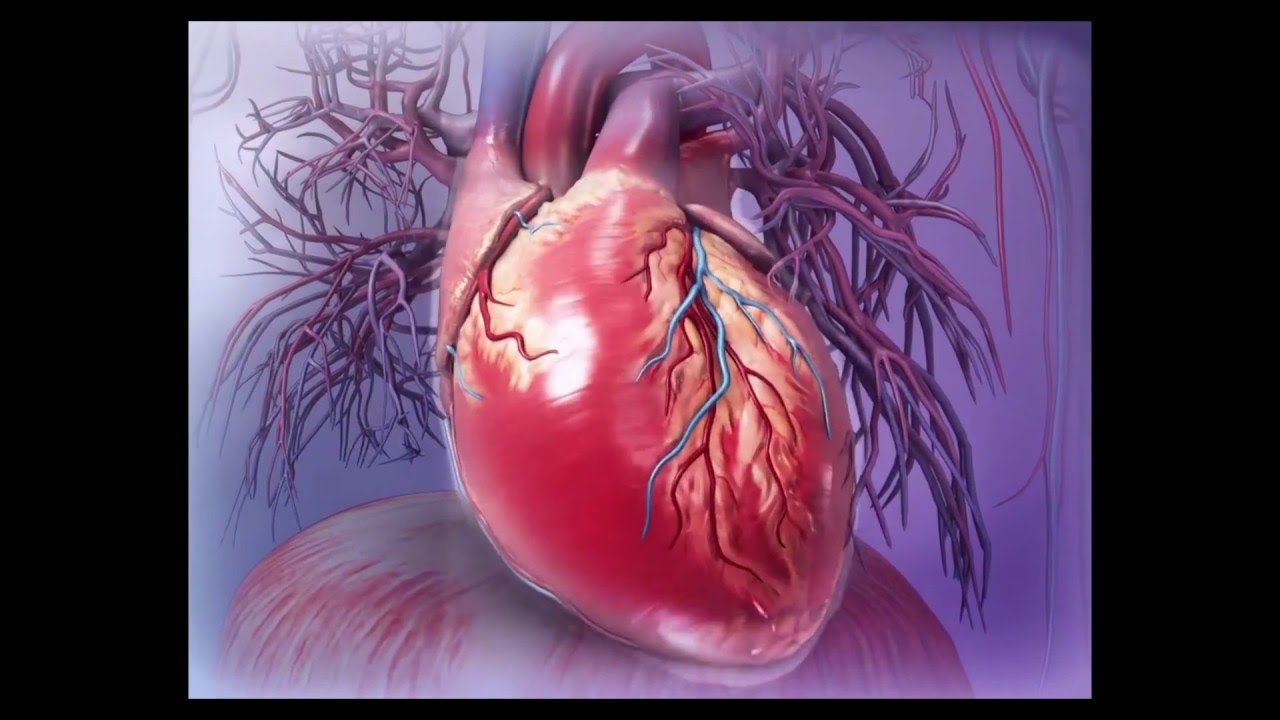
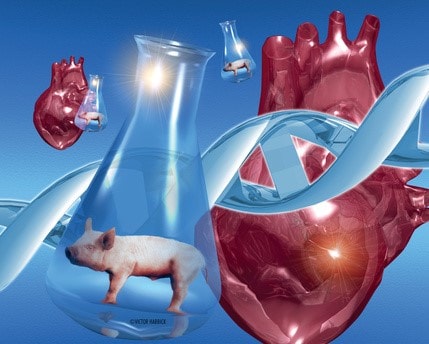
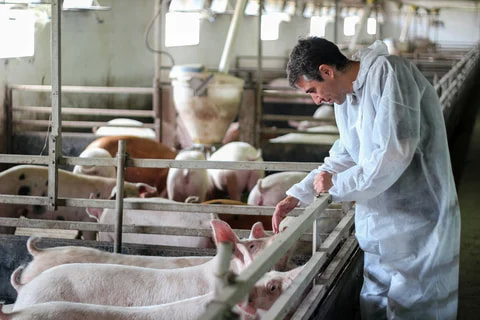
 RSS Feed
RSS Feed